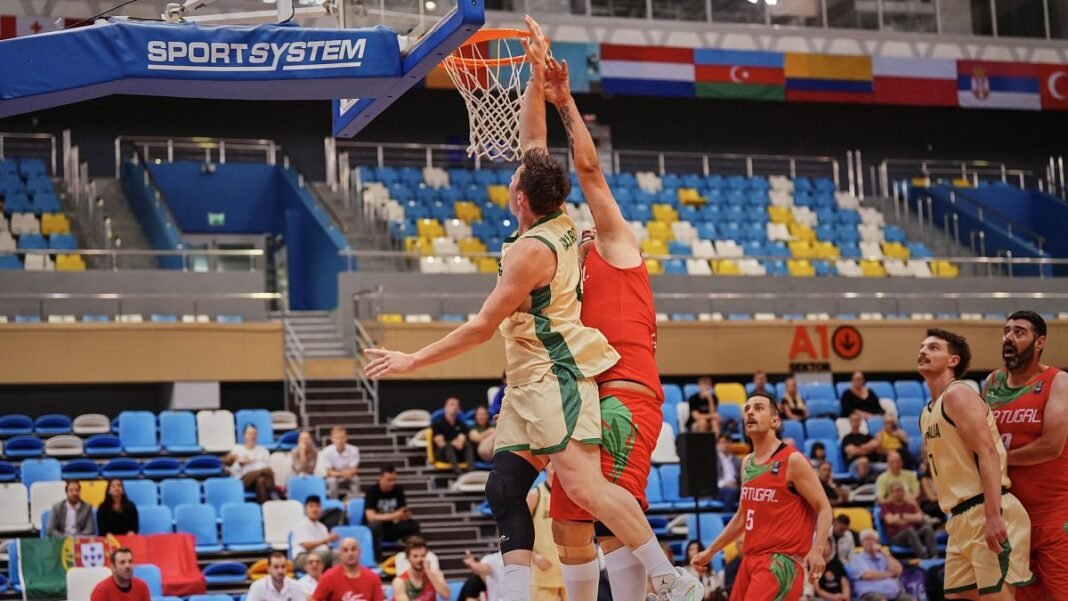In Astana, Kazakhstan, crowds erupted as Australian men’s team sealed gold in the 5×5 final at the 2025 Virtual World Basketball Championship. But for athletes with intellectual disabilities, this moment was more than winning. It was about a new call for vision, recognition and inclusion into the world stage.
The Virtus World Basketball Championships, held for the first time in Asia, attracted athletes from 11 countries, including France, Australia, Poland, Japan, Portugal, Spain, Venezuela, Italy, the United States and Kazakhstan. The team competed in two formats: traditional 5×5 and 3×3. This is rapidly gaining popularity.
Australia was ruled in both forms. In the men’s 5×5, Australia won gold, Portugal won silver, and Japan claimed bronze. In the women’s 5×5, Australia also won gold, Spain won silver, and Japan won bronze. The Australian women’s team won gold in 3×3 competitions.
For Zach Jordyn, the Australian team’s point guard, the experience was unforgettable. “It’s amazing to win. It’s been a long week and I’m happy to be able to achieve that in the end,” he said.
“It’s a great honor to represent my country, and I think it shows that people with intellectual disabilities can play this sport,” Jordyn said.
He is now aiming for Brisbane 2032.
The championship was held jointly by the National Basketball Federation of the Republic of Kazakhstan and the Bartus and a global federation of athletes with intellectual disabilities, including people with Down syndrome and autism.
Founded in 1986, Virtus oversees eligibility and classification systems designed to support elite contests in more than 12 sports and ensure fair play.
Athletes compete in three classification groups. II1 (Intellectual Disability) II2 of people with intellectual disabilities, athletes with more complex disabilities such as Down syndrome and cerebral palsy, and II3 of autistic athletes without intellectual disabilities. In this championship, athletes competed for II1.
The fight to return to the Paralympics
After the basketball cheating scandal at the 2000 Sydney Games, athletes with intellectual disabilities have been removed from the Paralympics. They made a comeback in 2012, but only in track and field, swimming and table tennis. Basketball has not returned to the Paralympics program.
Barry Holman, executive director of Virtus and board member of the Virtus International Basketball Federation (VIBF), said the exclusion continues to disrupt athletes.
“There were teams, countries that weren’t honest about all the athletes. It caused a lot of problems and challenges for all athletes with intellectual disabilities. They were all left out of the Paralympics. We think it’s unfair,” Holman said.
“We should punish people who don’t use fair play in sports, but all classes of people in our class have been removed,” he added.
VIBF is currently pushing for the inclusion of 3×3 basketball in its Paralympic program, with both male and female teams aiming to compete in the 2032 match in Brisbane. This championship is considered an important first step towards that goal.
Holman pointed out that the championship is more than just competition. Athletes have given them the opportunity to demonstrate their skills and dedication to basketball, and are now recognized as experts in what they love.
“When they show how they can dribble, pass, shoot and score, they show they can be successful in life, have a job, a family and we can all do everything we want to do,” Holman shared.
Portugal’s results in Astana reflect years of investment. He won two medals, a bronze medal in the 3×3 Championship and silver in the 5×5 tournament. Portugal has previously competed in eight finals, winning five of them and becoming the other three vice champions.
Portuguese team leader and Virtus Federation member Jose Costa Pereira noted that the country’s programme goes far beyond basketball. “Yesterday, our Down Syndrome futsal team won a gold medal at Ferrara, Italy. We won three medals within a week.”
Pereira is attributed to Portugal’s success as it hosts more than 300 events a year. “We are part of the Portuguese Sports Federation of all disability groups. We are responsible for intellectual disabilities, including intellectual disabilities, Down syndrome and autism,” he said.
The host country has expanded its own efforts using the event as a launchpad. Dina Temirgarieva, president of Kazakhstan’s Sports Federation for the Intellectual Disabled, said the event sent a clear message to society.
“Two years ago we submitted applications on behalf of the Union and our country. We have done a lot of work to bring the World Championships to Kazakhstan,” she said.
Kazakhstan lays the foundation for change
In 2025, Kazakhstan hosted two major Virtus events for athletes with intellectual disabilities. World Tennis Championships and World Basketball Championships.
“This is an important step because the public can see the professionalism and training of athletes with intellectual disabilities. Parents must believe in their children. They must believe that they can be in society through sports.”
Temirgaliyeva explained that Kazakhstan is now officially including intellectually disabled athletes at the National Spartakiad.
“Previously, Spartachians were only athletes with musculoskeletal disorders, hearing, and vision (impaired), and in the end, this is all officially included,” she said. The country is also preparing athletes for upcoming Virtus events in swimming, track and field and table tennis.
Abbei Alpamissov, president of Kazakhstan’s basketball federation, looked back on the long road to inclusion.
“Thirty years ago, there was no way to diagnose a disability. Since then, we have come a long way. It was important to support and host this event,” he said.
He added that the event has deep social importance beyond sports. It also marks the formation of Kazakhstan’s first basketball team for athletes with intellectual disabilities.
Temirgaliyeva emphasized that these developments are just the beginning in the future. They aim to create a path for athletes in Kazakhstan and Central Asia to participate in the 2026 Para-Asian Games and ultimately participate in the 2028 Paralympics in Los Angeles.
